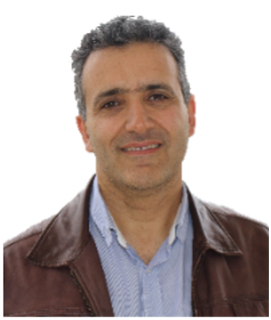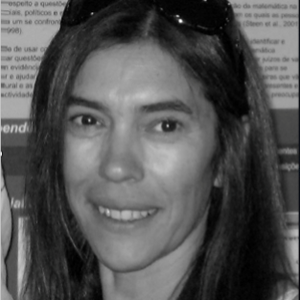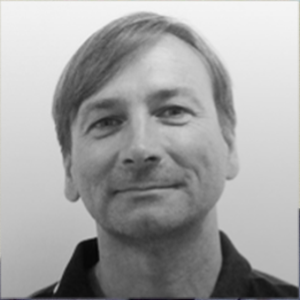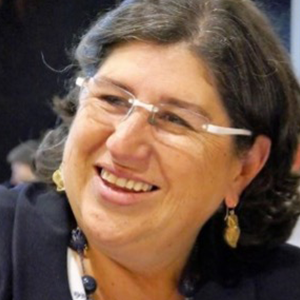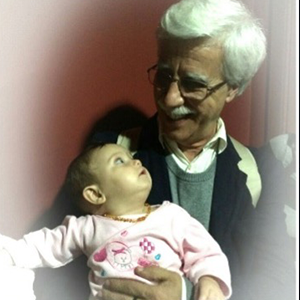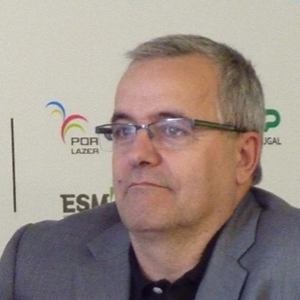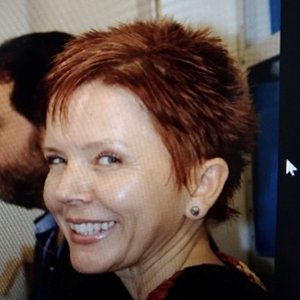MAY 6 – 9h30 Plenary Session
CARLOS RABADÃO
Cybersecurity: Are Humans Really the Weakest Link in the Chain?
Carlos Rabadão is a Coordinating Professor with Aggregation assigned to the Department of Computer Engineering at the School of Technology and Management of the Polytechnic Institute of Leiria. Holds the title of Aggregate in Informatics (Cybersecurity), PhD in Informatics Engineering and Master in Electronics and Telecommunications Engineering. His research work focuses on the areas of Computer Security and Computer Networks. In terms of participation in activities with the community, he has given several lectures and webinars, at the invitation of business, industrial and professional associations, as well as writing some opinion articles in the media, essentially in the area of Cybersecurity.
MAY 6 – 14h00 Plenary Session
MARTA LICARDO
Inclusion of immigrant children
Marta Licardo is professor at University of Maribor, Faculty of Education, Slovenia. She is Head of the Department for Preschool Education at the Faculty of Education. Her research interests are pedagogy, didactics, social sciences in early childhood education, inclusion, education of children with special needs and immigrant children. She is country coordinator for European Early Childhood Education Research Association for Slovenia. She leads or participates in several projects on national and international level related to her research interests (see more on https://pef.um.si/en/kontakt/10693/).
MAY 6 – 18h30 Plenary Session
Celina Vieira
Develop Critical and Creative Thinking: What are we talking about?
Celina Tenreiro Vieira is a Mathematics and Science teacher and a member of the CIDTFF – Research Center in Didactics and Technology in the Training of Trainers. She is the author of several books and articles on critical and creative thinking in basic education and in the areas of Science and Mathematics. She is a guest speaker at several seminars and scientific meetings.
Rui Vieira
Develop Critical and Creative Thinking: What are we talking about?
Rui M. Vieira is an Associate Professor at the University of Aveiro, and a member of the CIDTFF – Research Center in Didactics and Technology in the Training of Trainers. He has been involved in national and international research projects linked to his areas of expertise, such as science didactics and critical and creative thinking. He is the author of several books, articles and guest speaker at various seminars and scientific meetings.
MAY 7 – 11h00 Plenary Session
Ariana Cosme
New social constructions of learning and education
She is a professor at the Faculty of Psychology and Educational Sciences at the University of Porto. She holds a PhD in Educational Sciences from the University of Porto, held a Post-Doctorate in the field of Teacher Training at the Pontifical Catholic University of Paraná, Brazil, where she is a visiting professor. She is the author of works that focus on the issue of educational and pedagogical mediation and the reconfiguration of the teaching profession. She was a consultant for the Ministry of Education for the Program for the implementation of the new model of Curricular Autonomy and Flexibility at School and coordinates the evaluative study on the implementation and generalization of the aforementioned programme.
José Pacheco
New social constructions of learning and education
He holds a master’s degree in Educational Sciences from the University of Porto and a specialist in Literacy. He is the founder of Escola da Ponte, in Portugal – a reference for innovation. He was a member of the National Education Council of Portugal. For his relevant contribution to education, he received several awards, having been awarded the title of “notorious specialist”. He received from the Presidency of the Republic the “Commendation of the Order of Public Instruction”. In 2005, he moved to Brazil and, since then, travels around the country mobilizing teachers, educators, students, children, young people and education enthusiasts, who believe in a transformative and democratic education that integrates communities and the arts. He is the author of numerous books and articles on education and a great promoter of democratic management.
Rui Trindade
New social constructions of learning and education
He has a Primary School Teacher course, a degree in Child Development and Education Psychology, and a Master’s and Doctorate in Educational Sciences. He is an Associate Professor with Aggregation at the Faculty of Psychology and Educational Sciences of the University of Porto, as well as an integrated member of the Center for Educational Intervention and Research (CIIE). His areas of interest, as a researcher and author of books and articles, are related to the organization and management of the teaching and learning process in school contexts, the initial and continuous training of teachers or Pedagogy in Higher Education. He was a consultant for the Ministry of Education, within the scope of the Curricular Autonomy and Flexibility Project. He is currently chairman of the Scientific-Pedagogical Council for Continuing Education, in addition to being a member of the Management Council of both the OECD’s “Centre for Educational Research and Innovation” (CERI) and the Institute for Educational Assessment.
MAY 7 – 16h00 Plenary Session
Cléo Lima
Demedicalization in education: the importance of playing
Cléo Lima is a psychosociologist and researcher in the Micropolitics of Care in Work and Health (UFRJ – Brazil). She is also a specialist and researcher of Play and Educational Design in a Learning Community.

